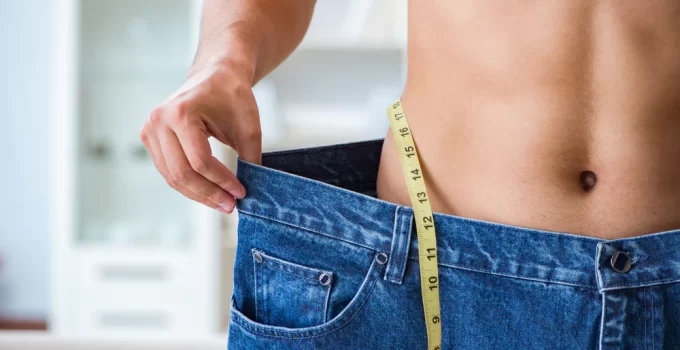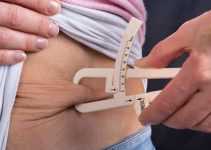Experts recommend slowly losing weight. It is more likely that the weight will stay off. According to the Academy of Nutrition and Dietetics, if you lose weight too quickly, you will lose muscle, bone and water rather than fat.
The academy advises that you aim to lose between 1-2 pounds each week and to avoid any fad diets that promise too much. You should make a commitment to your weight loss efforts and stick with them.
You will get faster results if you work with a doctor. This will ensure that you are healthy and receive the nutrients you need.
Plan
Most people have heard the expression “calories in and calories out”. It basically means that you need to consume more calories than you consume.
It’s not easy, however. Many people can share their personal experiences.
When trying to lose weight, nutrition and exercise are equally important. If your nutrition is not in order, all the exercise you do won’t make it easier to lose weight. Research shows that exercise is good for the body and mind, regardless of whether you are trying to lose weight.
It is important to know how your metabolism works. It’s also bad for your health if you cut back on calories. Your metabolism will slow down, which can lead to a loss of nutrients.
This can be done in many different ways without sacrificing your health. This is what you could do:
- Reduce portions
- Calculate how many calories you consume in a day and cut back.
- To find out how many calories each serving contains, read the labels on food.
- Get more water to keep you hydrated so that you don’t feel hungry.
No matter what method you choose, you will need to eat healthy foods such as fruits and vegetables. There is no one-size fits all approach to healthy eating. It’s a smart idea to work with a dietitian so that you can create a plan that meets your needs. It’s crucial to follow a healthy weight loss program. You must continue this trend for long-term health.
Get accountability and support
You can track your food with many apps. You probably carry your smartphone everywhere you go, so you can keep track of your eating habits. You can also keep a food journal with pen and paper detailing what you ate, when, and whereabouts.
Benefits of a keto diet, including burning fat for fuel, reducing appetite, and improving mental clarity. We also provides information about the program, including a meal plan, shopping list, and recipes. The program claims to help users lose weight quickly and sustainably. It also offers a 60-day money-back guarantee to ensure customer satisfaction.
It’s important to have someone to support you and keep you motivated. Ask your friends and family to help you lose weight.
A weight loss support group is a great way to share your experiences with others who are able to relate. Talk to someone you know that has lost weight. They are contagious and can be a great encouragement!
Discover What Motivates You to Eat
Food is fuel at its most basic. It provides energy for you to do your daily tasks. However, very few people eat for this reason. It is at every social event. It’s also where many of us go when we are having a bad day.
It is important to understand what you crave for when you are not hungry and to have a plan.
Finding out your triggers is the first step. Are you experiencing stress, anger or anxiety in a particular area of your life? Is food the main reward for good things?
Next, notice what feelings are coming up and make a plan to do something other than eating. Take a walk. Send a text to a friend
Finally, you can reward yourself for making a better choice. You don’t have to use food as a reward.
Reset When and What You Eat
Weight loss doesn’t require you to eat veganism, gluten-free or give up any one food group. You’re actually more likely to lose weight if you can live with it for the long-term.
It is sensible to reduce or eliminate empty calories.
Avoid foods high in added sugars. Sugary foods can have high calories and few nutrients. Try to limit your intake of added sugars to 10% of your daily calories.
Choose your carbs carefully You should look for foods that have a low glycemic score (for example, asparagus has a lower glycemic rating than potatoes) and/or lower in carbs per portion than other foods. Because of the loss of key nutrients like fiber, iron and B vitamins, whole grains are better than processed foods. These nutrients can be restored, as in “enriched” bread.
Include protein. It is satisfying and will keep your muscles strong. You can find vegetarian and vegan options (nuts and beans, soy, and poultry to name a few), along with lean meat, fish and dairy.
The majority of Americans have enough protein, but you could opt to get it from more lean sources. Your specific protein requirements will depend on your gender, age, and level of activity.
Get along with healthy fats. Eating small amounts of fat can make you feel fuller and less restrictive. You should choose olive oil, fish, nuts, seeds and other healthy fats. These have unsaturated oils, either monounsaturated (or polyunsaturated) fats.
Get fiber. Fiber can be found in fruits, vegetables, whole grains and even fruits. Some foods have more fiber than others. Artichokes and green peas are the top sources. Raspberries are the most popular fruit.
Eat more frequently. It could help you to eat less, if you eat only 5-6 times per day. You can either split the calories or make certain portions larger than others. It is important to plan your portions in order not to eat more than you planned.
Meal replacements These products can help you control your calories. These products are convenient and eliminate the guesswork from dieting. You will need to make changes in your eating habits if you decide to stop using meal replacements.
Watch your drinks. You can lose weight by cutting out all liquid calories such as soda, juice, or alcohol. You can replace them with zero-calorie beverages like unsweetened tea, lemon water, and black coffee.
You will be able to save calories by drinking diet drinks instead of sugary drinks. However, if you feel hungry and want to indulge in sweets or cookies, your diet plan can backfire.
Do You Need to Fast?
Fasting might seem like a quick way of losing weight. It’s better to have a plan you can follow over time that fits in with your lifestyle.
To determine if intermittent fasting is long-term safe, more research is necessary. The majority of studies on the effects of intermittent fasting were done on middle-aged, overweight adults. It is still unknown if intermittent fasting is safe for older people or those at healthy weights.
Fasts are not all the same. Some involve skipping all food. You can also fast where you only eat once a day. Research has not been extensive on the long-term effectiveness of intermittent fasting.
You may feel hungry or grumpy during the first few days of your fast. You might also feel constipated. You may also feel drained and unable to perform physical tasks. Take lots of water, and a multivitamin every day. Also, tell your doctor if you are taking any medications that may need to be adjusted.
Keep in mind that even if you fast, you will still need to change how you eat after your fast ends.
Whatever method you use to kickstart your weight loss efforts, the best way for it to last is through lifestyle changes such as a healthy diet and regular exercise. A registered dietitian can help you determine where to begin, how many calories you should cut and how safe it is.



